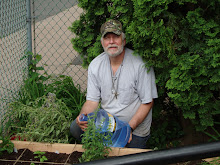
In companionship we position ourselves next to not across from, both literally and figuratively. We are all aware of how physical position can be used negatively. Have you ever walked into your boss's office, a person who never moves past the other side of the desk? Or visited a bank to talk about a loan? What a difference it makes in the conversation when the "other" (who already carries a superior status of authority) joins you in a chair next to you. This doesn't mean you don't look people in the eye...you do to enforce that you are a presence with them. But you also look in the same direction that person looks to see the same things physically and possibly emotionally. You can find it easier to empathize sometimes when you are not focused physically on the person, staring at them intently. That staring can disrupt the listening. We'll talk more about that later!
"Two are better than one, because they have a good reward for their toil. For if they fall, one will lift up the other." (Ecclesiastes 4:9-10a)
I once heard pastoral counseling described as offering to take your boat alongside another's to go out into deep water. You don't get in their boat, but you stay nearby in your own. If the other sinks, you are alongside and safe to help.

